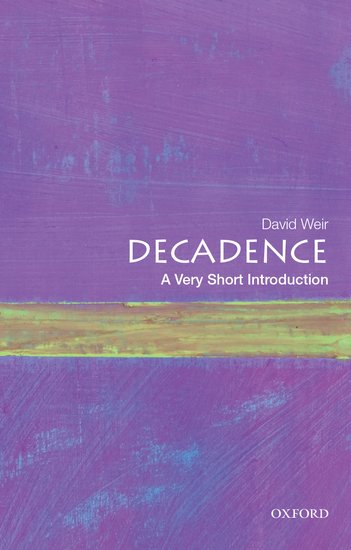Home >
A Very Short Introduction >
Decadence | デカダンス (Social Science)
A Very Short Introduction | Social Science
Decadence | デカダンス
ISBN: 9780190610227
Series: A Very Short Introduction
Decadence | デカダンス (Social Science)
A Very Short Introduction Decadence | デカダンス (Social Science) メディア > 書籍 > ノンフィクション > 言語学習書 Expect Delays of Up to 4 Weeks| ご注文はこちら |
ISBN
9780190610227 (旧規格ISBN: 0190610220)
- 説明
- シリーズの説明
- 目次
デカダンスの起源は、古代ローマに遡り、19世紀パリ、ビクトリア朝のロンドン、ウィーン、ベルリンへと続きます。ローマ衰退とともに、社会的にも芸術的にも退廃が生まれ、後の19世紀には芸術家や作家が影響を受けるに至りました。オスカー・ワイルドやグスタフ・クリムトなども取り上げ、芸術的、また社会的なデカダンスの違いなども考察します。現代の文化にも影響を与え続けるデカダンスをわかりやすく解説します。
難解なテーマを分かりやすく解説する入門書シリーズ
Very Short Introductions (VSI) シリーズは、1995年に Mary Beard 著『Classics』の刊行をもって創刊し、以来、歴史や政治、宗教、哲学、科学、時事問題、ビジネス、経済、芸術、文化など、様々な分野のテーマを取り上げてきました。発行点数も数多く、現在までに680タイトル以上を刊行しています。
本シリーズは、世界各国の評論家からの評価も高く、知識欲の強い読者の間では定番の入門書として定着しつつあります。販売部数は全世界で1,000万部を超え、53ヶ国語の言語に翻訳されています。
専門家による分析や新しい見解を盛り込みながら、イスラム教からポスト構造主義、宇宙論まで、難解なテーマを平易に説く、刺激に満ちた Very Short Introductions は、初学者にとって最適の入門書であり、予備知識のある読者には新たな視点を提供します。一般の方や大学生、大学院生に愛読されているほか、大学の授業にも採用されるなど、幅広くご活用いただいています。
注意:このシリーズはELT教材に該当しないため割引対象外です。
List of Illustrations
Introduction
1 Rome: Classical Decadence
2 Paris: Cultural Decadence
3 London: Social Decadence
4 Vienna and Berlin: Socio-cultural Decadence
Conclusion: Legacies of Decadence
References
Further reading
Index
デカダンスの起源は、古代ローマに遡り、19世紀パリ、ビクトリア朝のロンドン、ウィーン、ベルリンへと続きます。ローマ衰退とともに、社会的にも芸術的にも退廃が生まれ、後の19世紀には芸術家や作家が影響を受けるに至りました。オスカー・ワイルドやグスタフ・クリムトなども取り上げ、芸術的、また社会的なデカダンスの違いなども考察します。現代の文化にも影響を与え続けるデカダンスをわかりやすく解説します。
シリーズの説明
難解なテーマを分かりやすく解説する入門書シリーズ
Very Short Introductions (VSI) シリーズは、1995年に Mary Beard 著『Classics』の刊行をもって創刊し、以来、歴史や政治、宗教、哲学、科学、時事問題、ビジネス、経済、芸術、文化など、様々な分野のテーマを取り上げてきました。発行点数も数多く、現在までに680タイトル以上を刊行しています。
本シリーズは、世界各国の評論家からの評価も高く、知識欲の強い読者の間では定番の入門書として定着しつつあります。販売部数は全世界で1,000万部を超え、53ヶ国語の言語に翻訳されています。
専門家による分析や新しい見解を盛り込みながら、イスラム教からポスト構造主義、宇宙論まで、難解なテーマを平易に説く、刺激に満ちた Very Short Introductions は、初学者にとって最適の入門書であり、予備知識のある読者には新たな視点を提供します。一般の方や大学生、大学院生に愛読されているほか、大学の授業にも採用されるなど、幅広くご活用いただいています。
注意:このシリーズはELT教材に該当しないため割引対象外です。
EASY ORDER FORM
表示価格が税込価格
価格(税抜):
1,790 円


